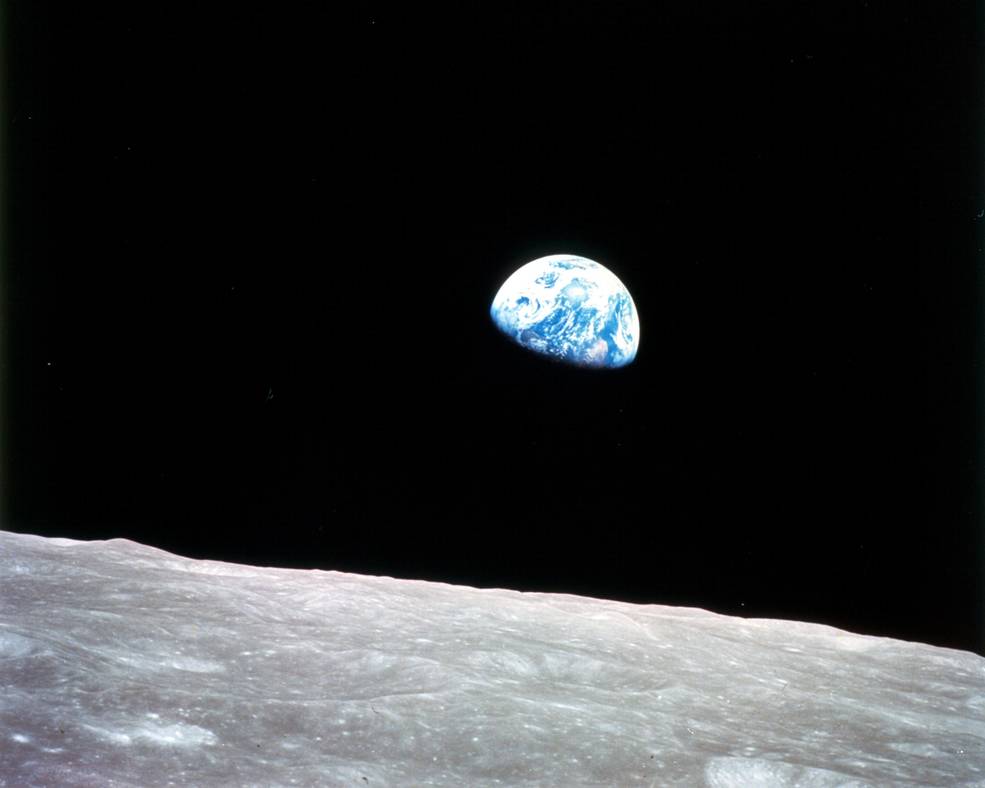60 Minutes
An American newsmagazine television program broadcast on the CBS television network. Debuting in 1968, the program was created by Don Hewitt, who chose to set it apart from other news programs by using a unique style of reporter-centered investigation.
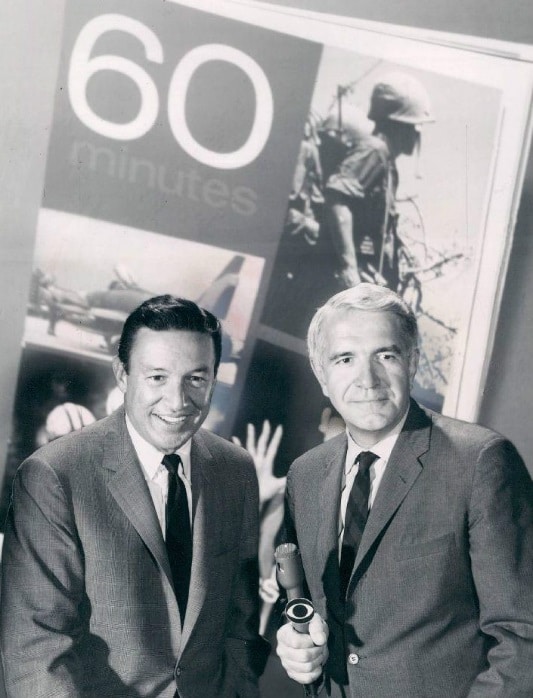
In mid-February Walter Cronkite and executive producer Ernest Lesser journeyed to Vietnam to cover the aftermath of the Tet Offensive.
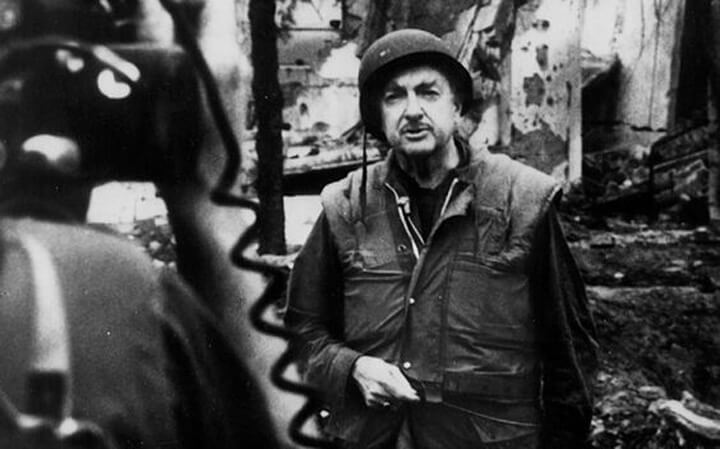
Civil Rights Act of 1968
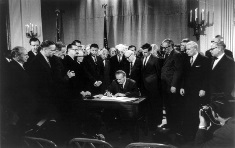 President Lyndon B. Johnson signed the Civil Rights Act of 1968, which banned discrimination in the sale or rental housing. The bill also goes federal protection to civil rights workers and makes it a federal crime to cross state lines for the purpose of inciting a riot.
President Lyndon B. Johnson signed the Civil Rights Act of 1968, which banned discrimination in the sale or rental housing. The bill also goes federal protection to civil rights workers and makes it a federal crime to cross state lines for the purpose of inciting a riot.
April 23-30, student’s protests at Columbia University in New York City, they took over administration buildings and shut down the university.
Were one among the various student demonstrations that occurred around the globe in that year. The Columbia protests erupted over the spring of that year after students discovered links between the university and the institutional apparatus supporting the United States’ involvement in the Vietnam War, as well as their concern over an allegedly segregated gymnasium to be constructed in the nearby Morningside Park. The protests resulted in the student occupation of many university buildings and the eventual violent removal of protesters by the New York City Police Department.
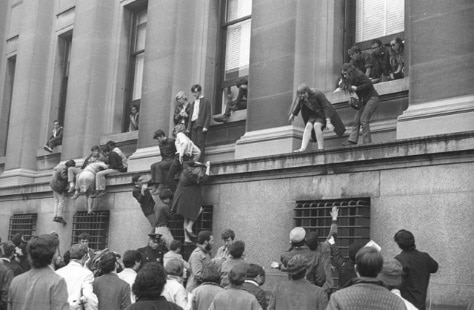
Hair
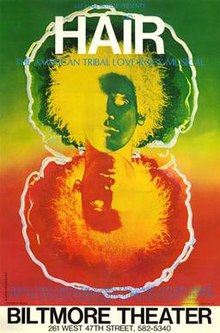 is a rock musical with a book and lyrics by Gerome Ragni and James Rado and music by Galt MacDermot. A product of the hippie counterculture and sexual revolution of the late 1960s, several of its songs became anthems of the anti-Vietnam War peace movement. The musical’s profanity, its depiction of the use of illegal drugs, its treatment of sexuality, its irreverence for the American flag, and its nude scene caused much comment and controversy. The musical broke new ground in musical theatre by defining the genre of “rock musical”, using a racially integrated cast, and inviting the audience onstage for a “Be-In” finale.
is a rock musical with a book and lyrics by Gerome Ragni and James Rado and music by Galt MacDermot. A product of the hippie counterculture and sexual revolution of the late 1960s, several of its songs became anthems of the anti-Vietnam War peace movement. The musical’s profanity, its depiction of the use of illegal drugs, its treatment of sexuality, its irreverence for the American flag, and its nude scene caused much comment and controversy. The musical broke new ground in musical theatre by defining the genre of “rock musical”, using a racially integrated cast, and inviting the audience onstage for a “Be-In” finale.
Hair tells the story of the “tribe”, a group of politically active, long-haired hippies of the “Age of Aquarius” living a bohemian life in New York City and fighting against conscription into the Vietnam War. Claude, his good friend Berger, their roommate Sheila and their friends struggle to balance their young lives, loves, and the sexual revolution with their rebellion against the war and their conservative parents and society. Ultimately, Claude must decide whether to resist the draft as his friends have done, or to succumb to the pressures of his parents (and conservative America) to serve in Vietnam, compromising his pacifist principles and risking his life.
After an off-Broadway debut on October 17, 1967, at Joseph Papp’s Public Theater and a subsequent run at the Cheetah nightclub from December 1967 through January 1968, the show opened on Broadway in April 1968 and ran for 1,750 performances. Simultaneous productions in cities across the United States and Europe followed shortly thereafter, including a successful London production that ran for 1,997 performances. Since then, numerous productions have been staged around the world, spawning dozens of recordings of the musical, including the 3 million-selling original Broadway cast recording. Some of the songs from its score became Top 10 hits, and a feature film adaptation was released in 1979. A Broadway revival opened in 2009, earning strong reviews and winning the Tony Award and Drama Desk Award for Best Revival of a Musical. In 2008, Time wrote, “Today Hair seems, if anything, more daring than ever.
Yippies
The Youth International Party, whose members were commonly called Yippies, was an American radically youth-oriented and countercultural revolutionary offshoot of the free speech and anti-war movements of the 1960s. It was founded on December 31, 1967. They employed theatrical gestures, such as advancing a pig (“Pigasus the Immortal”) as a candidate for President in 1968, to mock the social status quo. They have been described as a highly theatrical, anti-authoritarian and anarchist youth movement of “symbolic politics”.

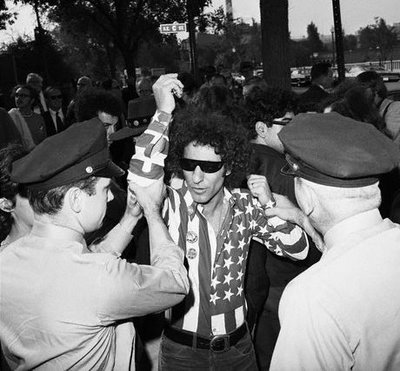
1968 Democratic National Convention
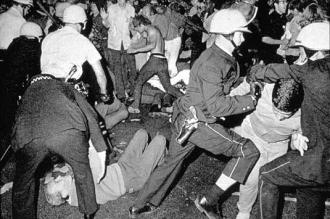 The 1968 National Convention of the U.S. Democratic Party was held August 26–29 at the International Amphitheatre in Chicago, Illinois. As President Lyndon B. Johnson had announced he would not seek reelection, the purpose of the convention was to select a new presidential nominee to run as the Democratic Party’s candidate for the office. The keynote speaker was Senator Daniel Inouye (D-Hawaii).
The 1968 National Convention of the U.S. Democratic Party was held August 26–29 at the International Amphitheatre in Chicago, Illinois. As President Lyndon B. Johnson had announced he would not seek reelection, the purpose of the convention was to select a new presidential nominee to run as the Democratic Party’s candidate for the office. The keynote speaker was Senator Daniel Inouye (D-Hawaii).
Vice President Hubert H. Humphrey and Senator Edmund S. Muskie of Maine were nominated for President and Vice President, respectively.
The convention was held during a year of violence, political turbulence, and civil unrest, particularly riots in more than 100 cities following the assassination of Martin Luther King, Jr. on April 4. The convention also followed the assassination of Democratic presidential hopeful Senator Robert F. Kennedy of New York, on June 5. Both Kennedy and Senator Eugene McCarthy of Minnesota had been running for the Democratic Nomination at the time.
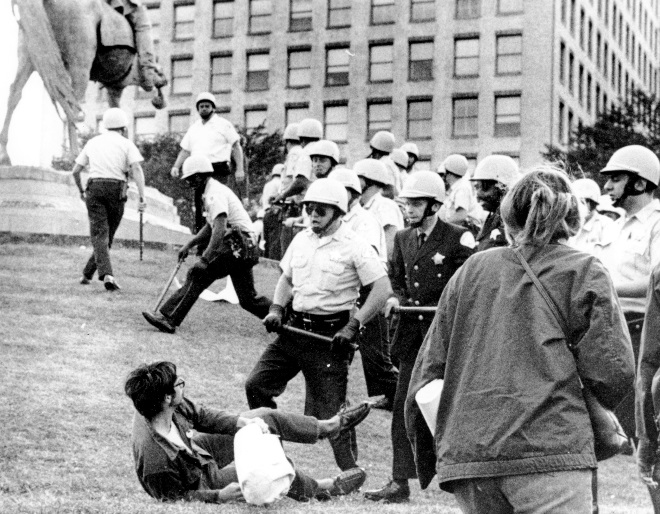
The Beatles Apple Record
Apple Records is a record label founded by the Beatles in 1968, as a division of Apple Corps Ltd. It was initially intended as a creative outlet for the Beatles, both as a group and individually, plus a selection of other artists including Mary Hopkin, James Taylor, Badfinger, and Billy Preston. In practice, by the mid-1970s, the roster had become dominated with releases by the former Beatles as solo artists. Allen Klein managed the label from 1969 to 1973. It was then managed by Neil Aspinall on behalf of the four Beatles and their heirs.
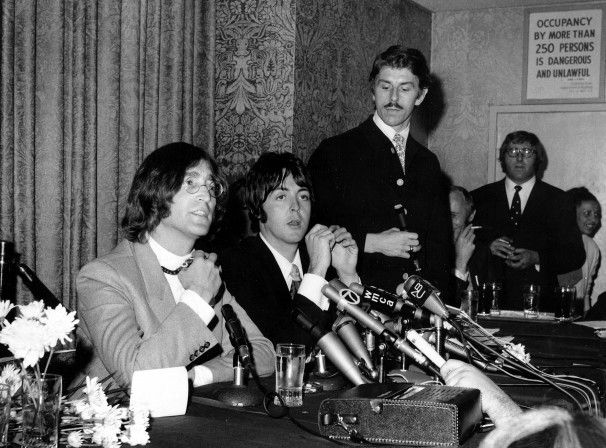
Warsaw Pact Invasion of Czechoslovakia
was a joint invasion of Czechoslovakia by five Warsaw Pact nations – the Soviet Union, Bulgaria, Hungary, East Germany and Poland – on the night of 20–21 August 1968. Approximately 250,000 Warsaw pact troops attacked Czechoslovakia that night, with Romania and Albania refusing to participate. East German forces, except for a small number of specialists, did not participate in the invasion because they were ordered from Moscow not to cross the Czechoslovak border just hours before the invasion. 137 Czechoslovakian civilians were killed and 500 seriously wounded during the occupation.
The invasion successfully stopped Alexander Dubček’s Prague Spring liberalisation reforms and strengthened the authority of the authoritarian wing within the Communist Party of Czechoslovakia (KSČ). The foreign policy of the Soviet Union during this era was known as the Brezhnev Doctrine
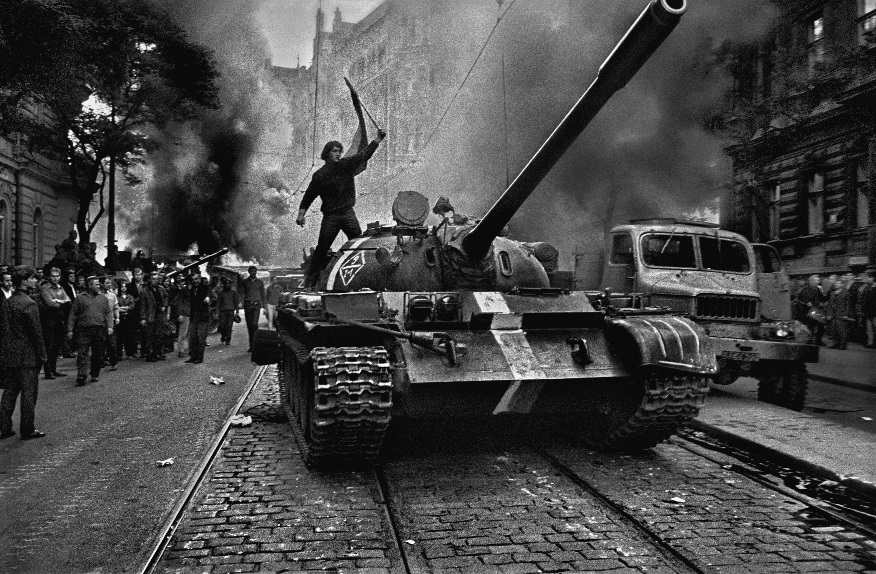
Arthur Ashe
Arthur Ashe became the first African-American male tennis player to win the US Open Championship.

The Mod Squad
is an American crime drama series that ran on ABC from 1968 to 1973. It starred Michael Cole as Peter “Pete” Cochran, Peggy Lipton as Julie Barnes, Clarence Williams III as Lincoln “Linc” Hayes, and Tige Andrews as Captain Adam Greer. The executive producers of the series were Aaron Spelling and Danny Thomas.
The counterculture police series earned six Emmy Award nominations, four Golden Globe nominations plus one win for Peggy Lipton, one Directors Guild of America Award, and four Logies.
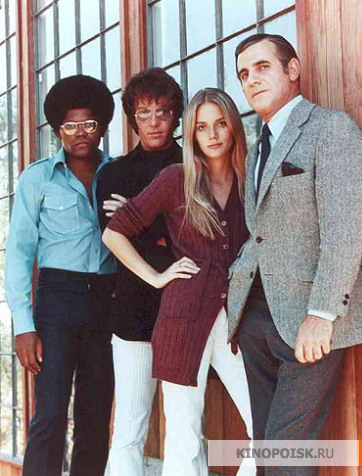
1968 Summer Olympics
Were an international multi-sport event held in Mexico City, Mexico, in October 1968.
These were the first Olympic Games to be staged in Latin America and the first to be staged in a Spanish-speaking country. They were also the first Games to use an all-weather (smooth) track for track and field events instead of the traditional cinder track.
October 16, African-American athletes Tommie Smith and John Carlos raise their arms in a black salute after winning.
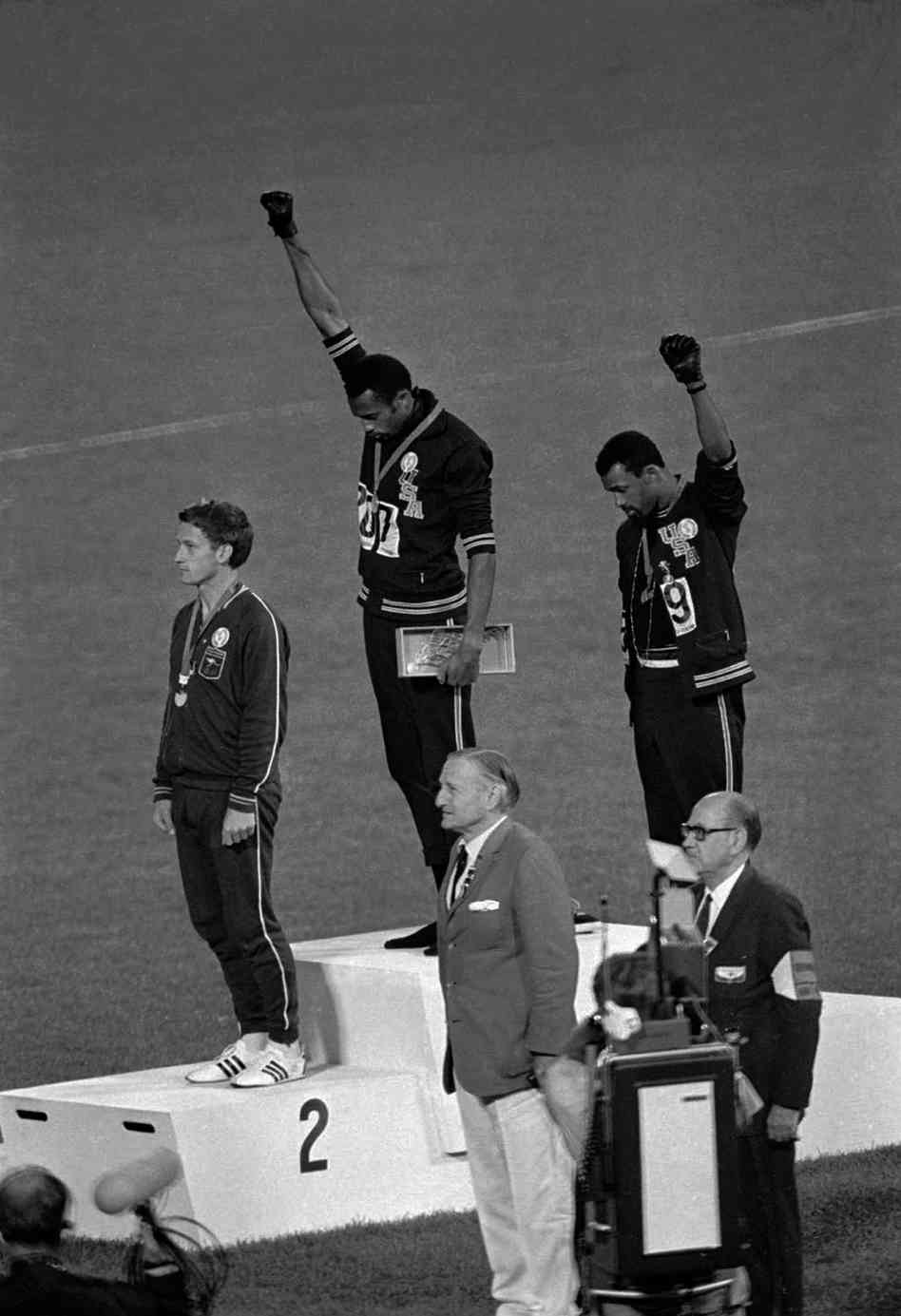
Apollo 7
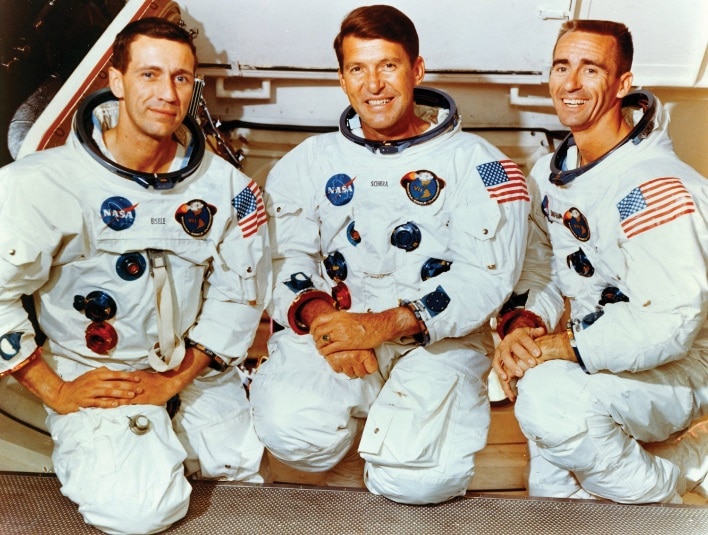
Was an October 1968 human spaceflight mission carried out by the United States. It was the first mission in the United States’ Apollo program to carry a crew into space. It was also the first U.S. spaceflight to carry astronauts since the flight of Gemini XII in November 1966. The AS-204 mission, also known as “Apollo 1”, was intended to be the first manned flight of the Apollo program. It was scheduled to launch in February 1967, but a fire in the cabin during a January 1967 test killed the crew. Manned flights were then suspended for 21 months, while the cause of the accident was investigated and improvements made to the spacecraft and safety procedures, and unmanned test flights of the Saturn V rocket and Apollo Lunar Module were made. Apollo 7 fulfilled Apollo 1’s mission of testing the Apollo Command/Service Module (CSM) in low Earth orbit.
The Apollo 7 crew was commanded by Walter M. Schirra, with senior pilot / navigator Donn F. Eisele, and pilot / systems engineer R. Walter Cunningham. Official crew titles were made consistent with those that would be used for the manned lunar landing missions: Eisele was Command Module Pilot and Cunningham was Lunar Module Pilot. Their mission was Apollo’s ‘C’ mission, an 11-day Earth-orbital test flight to check out the redesigned Block II CSM with a crew on board. It was the first time a Saturn IB vehicle put a crew into space; Apollo 7 was the first three-person American space mission, and the first to include a live TV broadcast from an American spacecraft. It was launched on October 11, 1968, from what was then known as Cape Kennedy Air Force Station, Florida. Despite tension between the crew and ground controllers, the mission was a complete technical success, giving NASA the confidence to send Apollo 8 into orbit around the Moon two months later. The flight would prove to be the final space flight for all of its three crew members—and the only one for both Cunningham and Eisele—when it splashed down in the Atlantic Ocean on October 22, 1968. It was also the only manned launch from Launch Complex 34, as well as the last launch from the complex.
Richard Nixon won the Presidential Election on November 5, 1968
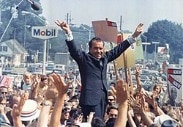
Elvis Presley: 68 Comeback Special

is a television special starring singer Elvis Presley, aired by the National Broadcasting Company (NBC) on December 3, 1968. It marked Presley’s return to live performance after seven years during which his career was centered in the movie business. Presley was unhappy with his distance from musical trends of the time, and the low-quality movie productions he was involved in.
Initially planned as a Christmas special by the network, and Presley’s manager Colonel Tom Parker, producer Bob Finkel transformed the idea. He hired director Steve Binder to update Presley’s sound, and to create a special that would be current and appeal to a younger audience. The special garnered good reviews when it aired, topped the Nielsen television ratings for the week, and was the most watched show of the season. Later known as the “Comeback Special”, it re-launched Presley’s singing career and his return to live performance.
The Beatles: The White Album
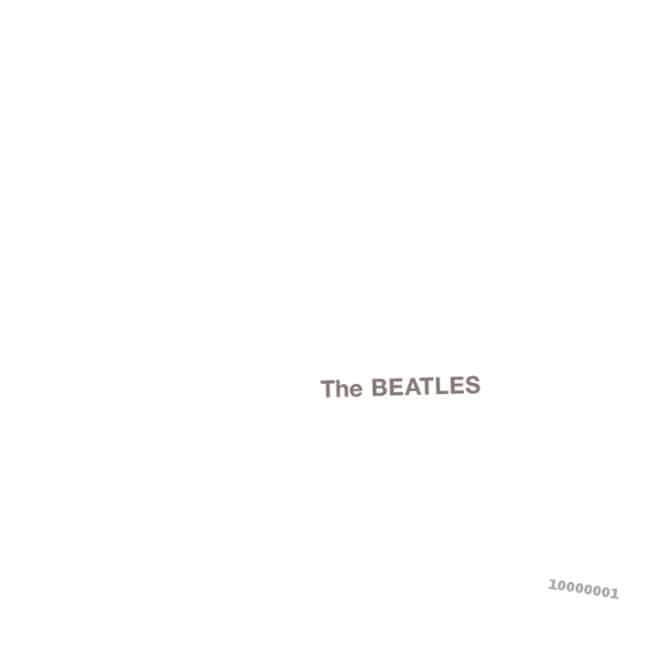
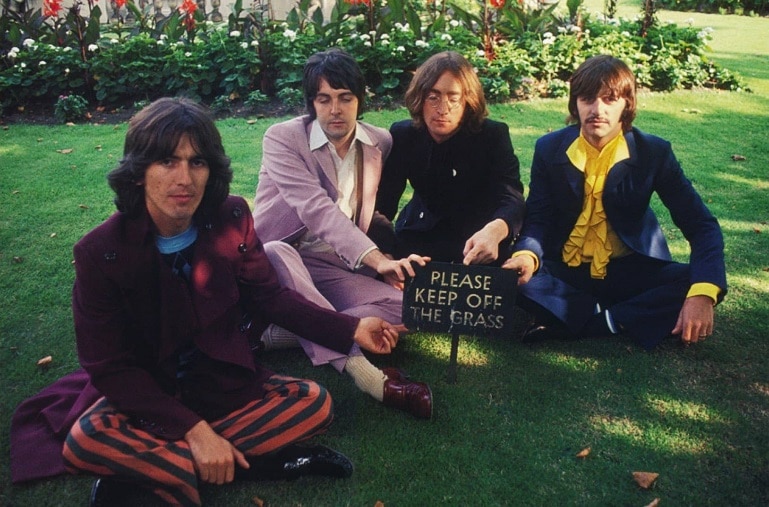
The Beatles, also known as the White Album, is the ninth studio album by English rock group the Beatles, released on 22 November 1968. A double album, its plain white sleeve has no graphics or text other than the band’s name embossed, which was intended as a direct contrast to the vivid cover artwork of the band’s earlier Sgt. Pepper’s Lonely Hearts Club Band. Although no singles were issued from The Beatles in Britain and the United States, the songs “Hey Jude” and “Revolution” originated from the same recording sessions and were issued on a single in August 1968. The album’s songs range in style from British blues and ska to tracks influenced by Chuck Berry and by Karlheinz Stockhausen.
Most of the songs on the album were written during March and April 1968 at a Transcendental Meditation course in Rishikesh, India. The group returned to EMI Studios (now known as Abbey Road Studios) in May to commence recording sessions that lasted through to October. During these sessions, arguments broke out among the foursome over creative differences. Another divisive element was the constant presence of John Lennon’s new partner, Yoko Ono, whose attendance at the sessions broke with the Beatles’ policy regarding wives and girlfriends. After a series of problems, including producer George Martin taking a sudden leave of absence and engineer Geoff Emerick quitting, Ringo Starr left the band briefly in August. The same tensions continued throughout the following year, leading to the eventual break-up of the band in April 1970.
On release, The Beatles received favourable reviews from the majority of music critics, but other commentators found its satirical songs unimportant and apolitical amid the turbulent political and social climate of 1968. The band and Martin later debated whether the group should have released a single album instead. Nonetheless, The Beatles reached number one on the charts in both the United Kingdom and the United States, and has since been viewed by some critics as one of the greatest albums of all time.
Big Brother and Holding Company: Cheap Thrills
Is a studio album by American rock band Big Brother and the Holding Company. It was their last album with Janis Joplin as lead singer. For Cheap Thrills, the band and producer John Simon incorporated recordings of crowd noise to give the impression of a live album, for which it was subsequently mistaken by listeners. Only the final song, a cover of “Ball and Chain”, had been recorded live (at The Fillmore in San Francisco).
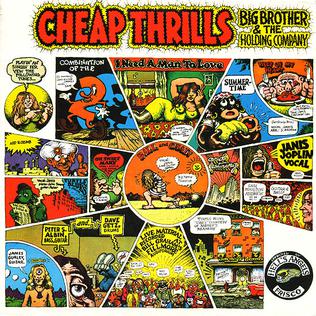 Big Brother obtained a considerable amount of attention after their 1967 performance at the Monterey Pop Festival, and had released their debut album soon after. The followup, Cheap Thrills, was a great success, reaching number one on the charts for eight nonconsecutive weeks in 1968. Columbia Records offered the band a new recording contract, but it took months to get through since they were still signed to Mainstream Records. The album features three cover songs (“Summertime”, “Piece of My Heart” and “Ball and Chain”). The album also features Bill Graham, who introduces the band at the beginning of “Combination of the Two”. The album’s overall raw sound effectively captures the band’s energetic and lively concerts. The LP was released in both stereo and mono formats with the original monophonic pressing now a rare collector’s item. The album had been considered for quadraphonic format in the early 70’s and eventually in 2002, was released as a Multichannel Sony SACD. The original quadraphonic mix remains unreleased.
Big Brother obtained a considerable amount of attention after their 1967 performance at the Monterey Pop Festival, and had released their debut album soon after. The followup, Cheap Thrills, was a great success, reaching number one on the charts for eight nonconsecutive weeks in 1968. Columbia Records offered the band a new recording contract, but it took months to get through since they were still signed to Mainstream Records. The album features three cover songs (“Summertime”, “Piece of My Heart” and “Ball and Chain”). The album also features Bill Graham, who introduces the band at the beginning of “Combination of the Two”. The album’s overall raw sound effectively captures the band’s energetic and lively concerts. The LP was released in both stereo and mono formats with the original monophonic pressing now a rare collector’s item. The album had been considered for quadraphonic format in the early 70’s and eventually in 2002, was released as a Multichannel Sony SACD. The original quadraphonic mix remains unreleased.
Rolling Stones: Beggars Banquet
is the seventh British and ninth American studio album by English rock band The Rolling Stones. It was released in December 1968 by Decca Records in the United Kingdom and London Records in the United States. The album was a return to roots rock for the band following the psychedelic pop of their 1967 album Their Satanic Majesties Request. It was the last Rolling Stones album to be released during Brian Jones’ lifetime, but he also played on some songs on their next album Let It Bleed, which was released after his death.
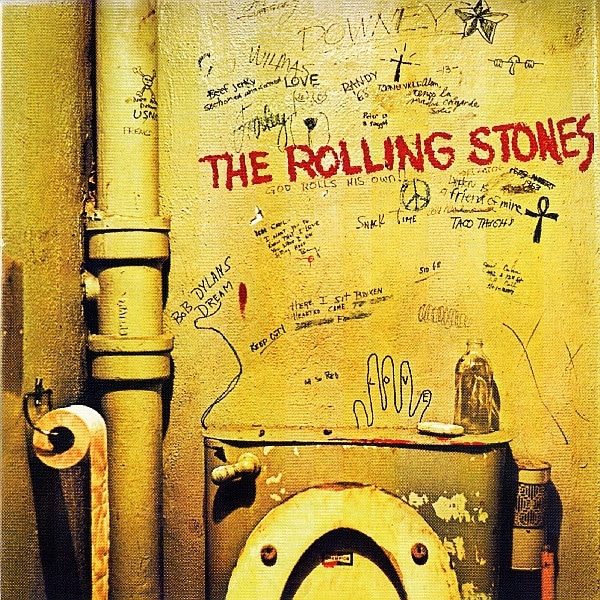
Apollo 8
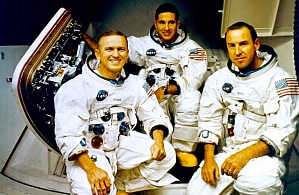 Apollo 8, the second manned spaceflight mission in the United States Apollo space program, was launched on December 21, 1968, and became the first manned spacecraft to leave Earth orbit, reach the Earth’s Moon, orbit it and return safely to Earth. The three-astronaut crew — Commander Frank Borman, Command Module Pilot James Lovell, and Lunar Module Pilot William Anders — became the first humans to: travel beyond low Earth orbit; see Earth as a whole planet; enter the gravity well of another celestial body (Earth’s moon); orbit another celestial body (Earth’s moon); directly see the far side of the Moon with their own eyes; witness an Earthrise; escape the gravity of another celestial body (Earth’s moon); and re-enter the gravitational well of Earth. The 1968 mission, the third flight of the Saturn V rocket and that rocket’s first crewed launch, was also the first human spaceflight launch from the Kennedy Space Center, Florida, located adjacent to Cape Canaveral Air Force Station.
Apollo 8, the second manned spaceflight mission in the United States Apollo space program, was launched on December 21, 1968, and became the first manned spacecraft to leave Earth orbit, reach the Earth’s Moon, orbit it and return safely to Earth. The three-astronaut crew — Commander Frank Borman, Command Module Pilot James Lovell, and Lunar Module Pilot William Anders — became the first humans to: travel beyond low Earth orbit; see Earth as a whole planet; enter the gravity well of another celestial body (Earth’s moon); orbit another celestial body (Earth’s moon); directly see the far side of the Moon with their own eyes; witness an Earthrise; escape the gravity of another celestial body (Earth’s moon); and re-enter the gravitational well of Earth. The 1968 mission, the third flight of the Saturn V rocket and that rocket’s first crewed launch, was also the first human spaceflight launch from the Kennedy Space Center, Florida, located adjacent to Cape Canaveral Air Force Station.
Originally planned as a second Lunar Module/Command Module test in an elliptical medium Earth orbit in early 1969, the mission profile was changed in August 1968 to a more ambitious Command Module-only lunar orbital flight to be flown in December, because the Lunar Module was not yet ready to make its first flight. This meant Borman’s crew was scheduled to fly two to three months sooner than originally planned, leaving them a shorter time for training and preparation, thus placing more demands than usual on their time and discipline.
Apollo 8 took 68 hours (2.8 days) to travel the distance to the Moon. It orbited ten times over the course of 20 hours, during which the crew made a Christmas Eve television broadcast where they read the first 10 verses from the Book of Genesis. At the time, the broadcast was the most watched TV program ever. Apollo 8’s successful mission paved the way for Apollo 11 to fulfill U.S. President John F. Kennedy’s goal of landing a man on the Moon before the end of the 1960s. The Apollo 8 astronauts returned to Earth on December 27, 1968, when their spacecraft splashed down in the Northern Pacific Ocean. The crew members were named Time magazine’s “Men of the Year” for 1968 upon their return.
